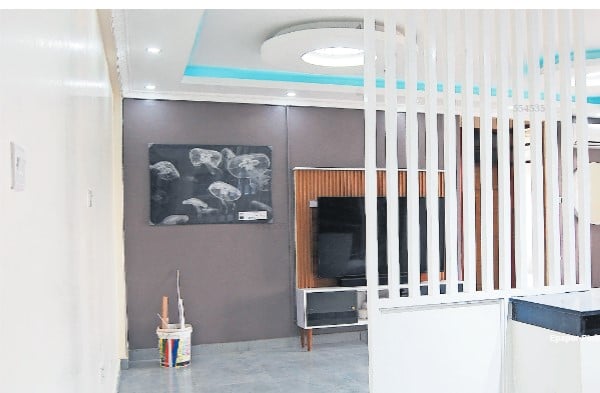
South Sudan President Salva Kiir (right) and first vice president Riek Machar in Kampala in 2019. PHOTO/FILE
South Sudan’s peace talks between the government and the hold-out groups will begin on May 10 in Nairobi, signalling a new step to end perennial disruptions to the country’s rebuilding.
A series of behind-the-scenes consultations that have been going on in the Kenyan capital to bring the government of South Sudan and the hold-out groups to the negotiation table, seems to have broken the impasse.
And the Kenyan mediation could now lead to longer-lasting peace.
Kenya’s mediation is led by former army commander Lazurus Sumbeiywo, the man who also successfully mediated the 2005 Sudan Comprehensive Peace Agreement (CPA) that helped set the stage for South Sudan’s later independence in 2011.
The majority of the holdout groups, who had been reluctant at first, now seem to have accepted the Kenyan-led mediation after some months of suspicion.
These groups are called hold-outs because they refused to sign on to the 2018 peace deal mediated by the Intergovernmental Authority on Development (Igad), which helped end a civil war between President Salva Kiir’s government and various armed groups that splintered continually since 2013.
Initially, the Catholic Church in Rome tried to bring the group back in the fold but dialogue fell through last year.
Mr Sumbeiywo late last month visited Juba and met with President Kiir and later announced that the talks would begin in a few days.
Several of the hold-out members told Sunday Monitor that their delegates have arrived in Nairobi and are engaging with the Kenya authorities for pre-talk consultations.
“We have been in discussion with the Kenyan authorities and the talks will surely begin on May 10,” said Pagan Amum who is the leader of the Real-Sudan People’s Liberation Movement (Real-SPLM), one of the armed groups.
In January, Emmanuel Ajawin, who is also the chairperson of the National Democratic Movement Patriotic Front (NDM-PF), had indicated that they don’t trust the talks being presided over by Kenya’s President William Ruto.
Mr Ajawin had demanded the talks be returned to Rome under the initiators, the Society of Sant Egidio in Rome, to first decide on whether all the parties can trust President Ruto.
Subsequently, in February, President Ruto appointed Sumbeiywo—who is highly respected in South Sudan—to lead the talks. This brought down some of the suspicions among those who did not trust President Ruto.
“Our discussions with President Kiir were fruitful and in the coming days, mediation might start. This is good news for the people of South Sudan because this country has suffered much and it should embark and invest in its effort to develop its institution to enhance state and nation building,” Gen Sumbeiywo told the media in Juba on April 27 after meeting President Kiir.
Former assistant minister for foreign affairs Dr Cirino Hiteny, who is part of the Real-SPLM delegation, said they are already in Kenya and most delegates have arrived.
However, Thomas Cirillo, the leader of the National Salvation Front (NAS), told Sunday Monitor that they are still consulting with the Kenyan mediation team. He did not guarantee his group’s participation in the talks.
NAS—the most armed of the hold-out groups has been involved in intermittent skirmishes with government forces in Central Equatoria. It has always believed that President Kiir has never been interested in negotiations, but has sustained a campaign of enticing their members to defect.
NAS insists that South Sudan must embrace a federal system of government to allow greater regional autonomy that would give the citizens more access to their natural resources instead of depending on the central government—which is often the main cause of the conflict.
The group — a coalition of opposition parties in South Sudan that did not sign the 2018 revitalised peace agreement under the umbrella, the South Sudan Opposition Movement Alliance (Ssoma) — and Juba have been in peace talks known as the Rome Initiative since 2020.
However, the Rome-based Sant’Egidio Community adjourned the peace talks between South Sudan’s transitional government and the non-signatories of the South Sudanese opposition groups in March 2023 after the Juba delegation withdrew.
In December 2023, President Kiir requested President Ruto to take over the mediation lead from the community of Sant’egidio in Rome complaining that the talks had taken long in Rome’s hands without resolution.
In February, President Ruto accepted after consulting with the community of Sant’egidio in Rome.
The South Sudan United Front (SSUF) of former army chief Paul Malong, has always maintained that it is ready to negotiate with Juba under Kenyan mediation.
Yet, the SPLM-IO led by first Vice President Riek Machar has opened a new dimension by demanding to be included in the talks with the hold-out group because they are key stakeholders in the 2018 peace agreement and the general peace in the country.






